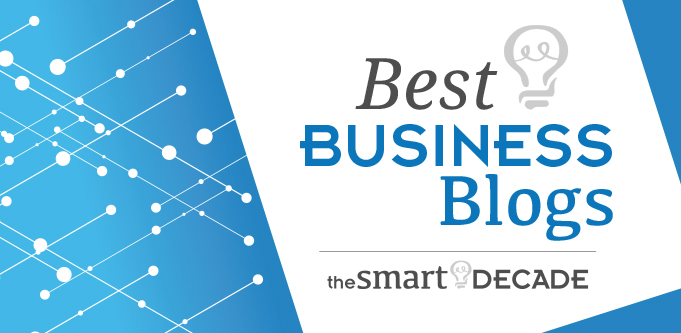Focus on key metrics, not tools
While we do SEO, we’re not an SEO agency – we’re a revenue agency! SEO just happens to be one of the many tools we use to generate meaningful results (mainly cash money) for our clients. Focus on the metrics & results that impact your business, rather than the tools & techniques you use to achieve them.
What I learned
- Focus on your goals, rather than the tools you use to reach them
- Speed dramatically influences ECR
- Don’t put all your eggs in one strategy basket
- PubCon Vegas, baby!
Transcript
Hey, welcome back, rankers. Coming to you from Vegas. That’s an alternate view. Last year I gave you the Strip. This year, we’ve got a golf course and the mountains in the background. Let me show you those, just for a sec. Hang on, wait a minute. Anyway, here we go. Look at that. Mountains in the background and everything. Alright, let’s get back on.
All right, so we’re here for Pubcon, and Wednesday, Thursday, Friday … I’ll be presenting on Thursday, talking about content and why it’s for brand and not for your backlinks. Then tomorrow, we’ve got this live site review panel with some absolute gurus of the industry, and this is probably where some of the most well-known and most well-respected SEOs get to speak, and I’m speaking as well, which is nice, ha-ha. So come along and see us, and look, got lots to say. But I wanted to talk to you a little bit more about revenue this week because that’s primarily what we focus on.
A lot of people think that we’re an SEO company, and that’s kind of how we started, but it’s a bit like saying we’re a hammer company, or if you’re a PPC company, it’s a bit like saying you’re a chisel company. These things are just the tools to get us the end result, and it’s a bit like saying, “Well what’s your goal?” And then once you’ve worked out what your goal is, then you’ve got to work out your strategy, and then what are your tactics for implementing that strategy to achieve your goal?
So for us, that’s how we work with businesses, and that’s how it’s evolved over the years, and that’s why we love probably working, more than most, with e-commerce, because it’s easier to measure and you get that instant return, straight away. You don’t have to wait for that lead, for instance, to be converted to a sale and all those sorts of things, like you do with a lead gen site, to work out how much revenue was delivered from that activity that you just did.
This is the sort of thing I’m talking about. Like, we look at all the different channels and how we can influence them. So if you have a look at this one, so this is another speed fix, right? I talk about speed all the time because it not only influences the … A lot of people say, “Oh, you’ve got to do it for Google.” Well, yeah, but who cares, right? Because the reason that Google cares about it is because that your customers care about it, right? So think about your customers first before you think about Google, basically. That’s the way that we look at it. So if your customers hate it, maybe you should fix it for your customers. And hey, Google, yeah. All right, cool. You like it too? Yeah, awesome.
But what it does is that it … the main thing that you will see straight away on an e-commerce site, is a lift in e-commerce conversion rates. Now, e-commerce conversion rates are essentially a lag measure, or a measure … or something that you measure afterwards, to say that, “Okay, the e-commerce conversion rate is rising over time. That’s a good sign for us.” But just keep in mind, e-commerce conversion rate can be affected by lots of things, right? It can be affected by … a large drop in traffic might increase your e-commerce conversion rate, but subsequently, your revenue might be dropping as well if that’s happening. So it’s a good lag measure to know that you are doing the right things, and then you’ve got to work out what your lead measures are. For us, for e-commerce clients, it’s basically looking at revenue every day. You know, are we on the increase? Are we going to hit the goal this month?
Here’s one case in point. We set ourselves a bit of a challenge with this one, and what we’re looking at here is time, before and after we made a change on speed, but I just want to ignore that first result because that’s a bit of an anomaly out there, a bit of an outlier. But you can see here, Google organic, the e-commerce conversion rate’s gone up 232%, and subsequently, revenue has gone up by 5,000. 5,000, but traffic has gone up by 20% as well. So you can focus on all these things, and then you have a look at stuff like this, where you go, “Well, maybe it’s cheaper getting that money out of Facebook.” So for this particular client, 59 sales here, at the cost of $8 per sale, for a total of $7,000. So that’s a really good return, right? And then you can look at, where do we invest that money to get the best return, basically.
You’ve got some fundamental things across your whole site that you need to invest in, and one of those, obviously, speed, and how much of an impact it can make. But you need to have your lag measures, essentially, and then your lead measures. For us, the main lag measure for an e-commerce client is, what’s the revenue doing? I know for a lot of SEO people, it might be how many backlinks do you have, but seriously, just if you’re e-commerce, focus on your revenue, and you’ll be amazed. Don’t worry about how much traffic you’re getting from Google, how much you’re getting from Facebook. As long as you’re hitting your revenue goals, who cares?
Hopefully see you at Pubcon, if you’re here. Please come and hit me up, come and say hello. Come and have a look at our presentation on the site reviews, and also a why the content is for brand, not your backlinks. We will see you next week, maybe from the SEMrush Awards in Sydney, where we’ll see a lot of people get some well-deserved accolades. Thanks very much everyone. See you soon. Bye.

Jim’s been here for a while, you know who he is.


